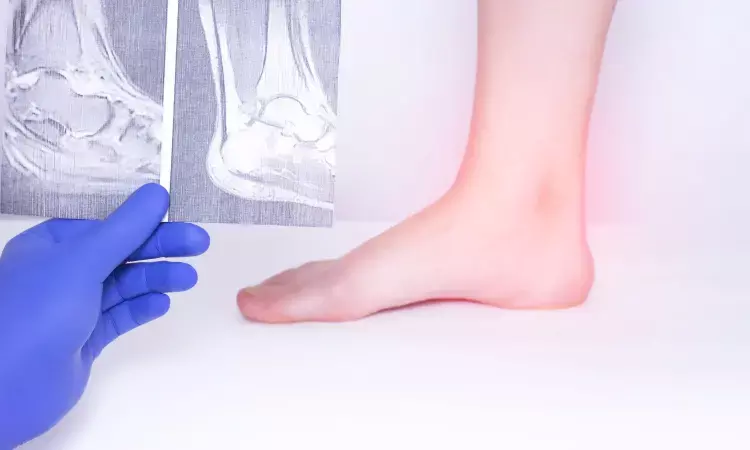- Home
- Medical news & Guidelines
- Anesthesiology
- Cardiology and CTVS
- Critical Care
- Dentistry
- Dermatology
- Diabetes and Endocrinology
- ENT
- Gastroenterology
- Medicine
- Nephrology
- Neurology
- Obstretics-Gynaecology
- Oncology
- Ophthalmology
- Orthopaedics
- Pediatrics-Neonatology
- Psychiatry
- Pulmonology
- Radiology
- Surgery
- Urology
- Laboratory Medicine
- Diet
- Nursing
- Paramedical
- Physiotherapy
- Health news
- Fact Check
- Bone Health Fact Check
- Brain Health Fact Check
- Cancer Related Fact Check
- Child Care Fact Check
- Dental and oral health fact check
- Diabetes and metabolic health fact check
- Diet and Nutrition Fact Check
- Eye and ENT Care Fact Check
- Fitness fact check
- Gut health fact check
- Heart health fact check
- Kidney health fact check
- Medical education fact check
- Men's health fact check
- Respiratory fact check
- Skin and hair care fact check
- Vaccine and Immunization fact check
- Women's health fact check
- AYUSH
- State News
- Andaman and Nicobar Islands
- Andhra Pradesh
- Arunachal Pradesh
- Assam
- Bihar
- Chandigarh
- Chattisgarh
- Dadra and Nagar Haveli
- Daman and Diu
- Delhi
- Goa
- Gujarat
- Haryana
- Himachal Pradesh
- Jammu & Kashmir
- Jharkhand
- Karnataka
- Kerala
- Ladakh
- Lakshadweep
- Madhya Pradesh
- Maharashtra
- Manipur
- Meghalaya
- Mizoram
- Nagaland
- Odisha
- Puducherry
- Punjab
- Rajasthan
- Sikkim
- Tamil Nadu
- Telangana
- Tripura
- Uttar Pradesh
- Uttrakhand
- West Bengal
- Medical Education
- Industry
Tigulixostat safe at all doses in lowering serum urate levels: CLUE trial

A recent study published in Arthritis and Rheumatology, an official Journal of the American College of Rheumatology, has concluded that in comparison to the placebo, Tigulixostat lowers serum urate levels ( sUA).
Tigulixostat is safe at all doses, the researchers mentioned.
Researchers evaluated the safety and efficacy of Tigulixostat, a non-purine xanthine oxidase inhibitor, in lowering sUA levels in gout patients with a history of hyperuricemia.
The study was a randomized, double-blind, placebo-controlled, parallel-group, dose-finding phase II trial. Gout patients were randomly assigned to receive daily 50 mg, 100 mg, or 200 mg orally of tigulixostat or placebo for 12 weeks. The primary endpoint is <5.0 mg/dL of serum urate.
The study results could be summarised as follows:
- There was a total of 143 patients.
- Thirty-four patients, 38 patients and 37 patients received 50 mg, 100 mg, and 200 mg tigulixostat, respectively.
- 47.1% in 50 mg, 44.7% in 100 mg, and 62.2% in 200 mg achieved an sUA level of <5.0 mg/dL compared to the placebo at week 12.
- In the placebo group, only 2.9% achieved the range.
- The mean percentage for sUA level change was higher in the tigulixostat dose groups (−38.8% to −61.8%) than in the placebo group.
- In the tigulixostat and placebo groups, the gout flare rate requiring rescue treatment ranged from 9.4% to 13.2%.
- The adverse events incidence was 50.0% to 56.8% by the group with mild to moderate severity.
The researchers said, “This phase II, randomized, double-blind, placebo-controlled trial compared the efficacy of different doses of tigulixostat, a novel xanthine oxidase inhibitor, with that of placebo for reducing serum urate levels in patients with gout and hyperuricemia. A higher proportion of patients treated with tigulixostat achieved a serum urate level below 5.0 mg/dL at 12 weeks (62.2% in the 200-mg group) compared with those who received a placebo (2.9%). Febuxostat was initially included in the study as a comparator group; however, the trial protocol was amended following the FDA black box warning regarding the cardiovascular risk associated with febuxostat use.”
Tigulixostat shows promising results as a novel serum urate–lowering therapy. More extensive studies are needed to better understand its efficacy and safety over a longer-term follow-up.
To conclude, Tigulixostat lowered sUA levels compared to the placebo. The findings are significant at all doses of Tigulixostat, and the safety profile is acceptable.
Further reading:
https://onlinelibrary.wiley.com/doi/10.1002/art.42447
BDS, MDS in Periodontics and Implantology
Dr. Aditi Yadav is a BDS, MDS in Periodontics and Implantology. She has a clinical experience of 5 years as a laser dental surgeon. She also has a Diploma in clinical research and pharmacovigilance and is a Certified data scientist. She is currently working as a content developer in e-health services. Dr. Yadav has a keen interest in Medical Journalism and is actively involved in Medical Research writing.
Dr Kamal Kant Kohli-MBBS, DTCD- a chest specialist with more than 30 years of practice and a flair for writing clinical articles, Dr Kamal Kant Kohli joined Medical Dialogues as a Chief Editor of Medical News. Besides writing articles, as an editor, he proofreads and verifies all the medical content published on Medical Dialogues including those coming from journals, studies,medical conferences,guidelines etc. Email: drkohli@medicaldialogues.in. Contact no. 011-43720751


